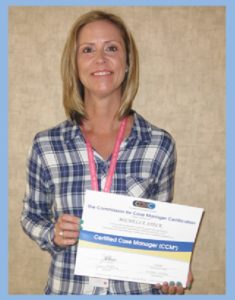 Caring, giving, sharing. The holidays can bring out the best in most of us. But for family caregivers, this is everyday life.
Caring, giving, sharing. The holidays can bring out the best in most of us. But for family caregivers, this is everyday life.
Caring for a loved one can be a rewarding experience. But it also can be very stressful on the caregiver, especially if that individual is trying to manage a career, family and children in addition to the caregiving responsibilities.
The most important piece of advice to give family caregivers is to care for themselves first. It’s similar to oxygen masks in airplanes. You know how they say to put it on yourself before helping somebody else? That’s what this is like. You have to take care of yourself first so you’ll be in a good position both physically and emotionally to help someone else.
Family caregivers are family members, friends and neighbors who attend to the daily needs of relatives who are unable to take care of themselves. Currently, there are more than 34 million unpaid caregivers in the United States, with the majority of them (83 percent) being family caregivers. The typical caregiver is female and provides up to 20 hours of care a week, often including physical, emotional and financial support.
Caregiving responsibilities are often needed every day and can range from preparing meals and paying bills to managing medications and arranging doctors’ appointments. The additional tasks can make finding a balance between family and work life hard. And, it usually leaves very little – if any – time for the caregiver herself.
The strain of caregiving can lead to a higher risk of health issues for the caregiver, which, in turn, can affect the ability to provide care. It can be cyclical. A caregiver’s health can worsen as she continues to put her family and loved one’s needs above her own. And as her health worsens, she can become less capable of providing the needed level of care to her loved one, which then can cause her continued stress and health issues.
So, what’s a family caregiver to do? Stop and pay attention to your own well being. Make sure you’re getting a good night’s sleep, eating healthy meals, exercising regularly and taking recurring breaks from the caregiving responsibilities.
In addition, accept offers of help from others and delegating responsibilities when possible. Be open to new ways of doing things that can help you in caring for your loved one, whether it’s a different approach or even new technology.
Other recommendations include getting and staying organized. Make lists and write down information that can be shared with others such as directions for medications, daily routines or information from a doctor’s visit. Organize medical and legal information so it’s up-to-date and easy to find. And look for support from other caregivers or caregiving support groups. Mountain Valley Regional Rehabilitation Hospital offers a free Caregiver Support Group the third Wednesday of every month. For more information, call Karen Russell, 602-540-5310. QCBN
By Michelle Steck
Michelle Steck, LMSW, CCM, is the director of case management at Mountain Valley Regional Rehabilitation Hospital
Mountain Valley Regional Rehabilitation Hospital provides specialized physical rehabilitation services to patients recovering from or living with disabilities caused by injuries, illnesses, or chronic medical conditions.The hospital is consistently ranked in the Top 10 percent of inpatient rehabilitation facilities nationally by the Uniform Data System for Medical Rehabilitation (UDSMR) and is certified by The Joint Commission in stroke and brain injury rehabilitation.
For more information, visit MVRRH.ernesthealth.com.
3700 N. Windsong Drive • Prescott Valley, AZ 86314 • 928-759-8800 • www.mvrrh.ernesthealth.com







